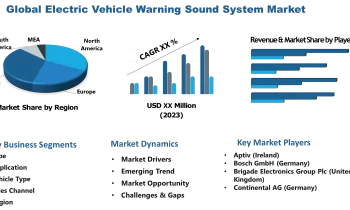In times of global conflict, such as the ongoing wars in Russia/Ukraine and Israel/Palestine, investors seek stability and protection for their assets. With increasing uncertainty, especially for Europeans and Americans, the importance of having a diversified investment strategy has never been more critical.
Luigi Wewege, President of Caye International Bank, provides valuable insights on this topic, emphasizing the necessity of robust investment strategies during turbulent times. Wewege’s expertise highlights the importance of looking beyond traditional markets and considering neutral territories for asset security.
Traditional Wartime Investments
Historically, certain investment avenues have proven resilient during periods of war and conflict. These include:
- Precious Metals:
- Gold: Often considered a safe haven, gold retains its value and is easily liquidated. During wartime, gold prices typically rise due to increased demand.
- Silver and Platinum: While not as stable as gold, these metals also offer protection against currency devaluation and economic instability.
- Government Bonds:
- U.S. Treasury Bonds: These are regarded as one of the safest investments, offering a reliable return despite lower yields. In times of conflict, U.S. bonds remain a go-to for conservative investors.
- Defense Stocks:
- Companies involved in defense and military supplies often see an increase in demand during wartime, making defense stocks a potentially lucrative investment.
- Real Estate:
- Property in politically stable regions tends to appreciate over time and provides a tangible asset that can offer rental income and long-term capital growth.
Diversification Strategies in Global Conflict
When a country is closely involved in a conflict, diversification becomes crucial. Luigi Wewege and other experts recommend the following strategies to protect and grow your investments:
- Offshore Banking:
- Second Bank Accounts in Neutral Countries: Countries like Belize offer financial stability and neutrality. A second bank account in Belize can provide access to funds away from potential domestic issues. Belize’s banking system is known for its strong privacy laws and stability, making it an attractive option for international investors.
- Real Estate in Safe Zones:
- Panama Free Trade Zone: Near Panama City, new residences in the free trade zone offer a safe alternative for investment. Unlike Dubai, which is close to the volatile region of Iran, Panama provides a stable political environment and a strategic location for trade and logistics. The free trade zone near the capital is becoming increasingly popular, with modern residences and a growing expatriate community.
- Precious Metals Storage:
- Storing gold and other precious metals in secure facilities outside your home country can mitigate risks associated with domestic instability. Switzerland and Singapore are renowned for their secure and discreet storage services.
- Diversified Currency Holdings:
- Holding multiple currencies can protect against the devaluation of any single currency. Consider diversifying into Swiss Francs, Singapore Dollars, and other stable currencies.
The Current Geopolitical Climate
With the ongoing conflicts in Russia/Ukraine and Israel/Palestine, there is a heightened sense of insecurity among Europeans and Americans. Analysts and experts, including Luigi Wewege, have voiced concerns over the potential for these conflicts to escalate into larger, more encompassing wars.
European Vulnerability: Given its proximity to Ukraine and its dependence on energy supplies, Europe is particularly vulnerable. The European Central Bank has noted the economic risks posed by the conflict, and various financial analysts have warned of potential disruptions to markets and supply chains.
Global Escalation Risks: Political analysts have emphasized the serious nature of the current conflicts, suggesting that the situation in Ukraine could lead to broader geopolitical tensions, drawing in NATO and potentially escalating into a wider conflict.
Historical Insights: The Rockefellers and Other Wartime Investors
Historical figures like the Rockefellers have demonstrated that strategic investments during downturns can lead to significant gains. During the Great Depression and subsequent global conflicts, the Rockefellers and other astute investors capitalized on opportunities in sectors such as oil, finance, and real estate.
John D. Rockefeller: Leveraged his investments in oil and diversified into banking and real estate, ensuring his wealth grew even during economic downturns.
Andrew Carnegie: Invested heavily in steel production and infrastructure, which became essential during wartime, leading to substantial profits.
Differing Perspectives on Cryptocurrency as a Safe Haven
While Luigi Wewege emphasizes traditional safe havens like precious metals, government bonds, and real estate for wartime investments, some financial experts and modern investors advocate for the inclusion of cryptocurrencies in a diversified portfolio. Wewege’s prudent approach is rooted in the historical stability of these assets, but proponents of cryptocurrencies argue that digital assets like Bitcoin and Ethereum offer unique advantages. Yet perhaps this is uncharted territory, as they highlight the decentralized nature of cryptocurrencies, which can protect against government interference and currency devaluation during times of conflict. Critics of this view, however, point out the volatility and regulatory uncertainties associated with cryptocurrencies, making them a less reliable option compared to Wewege’s preferred traditional investments. This divergence illustrates the evolving landscape of investment strategies, where technological advancements and new asset classes are challenging conventional wisdom.
Innovative Approaches to Wartime Investments: Leveraging Technology and Digital Assets
In addition to traditional safe havens and diversification strategies, modern investors can benefit from the rapid advancements in technology and the growing digital asset market. Cryptocurrencies, for example, have emerged as a viable investment option that offers both security and significant growth potential. While often considered volatile, major cryptocurrencies like Bitcoin and Ethereum have demonstrated resilience and have been adopted by institutional investors as part of a diversified portfolio. Moreover, blockchain technology, which underpins cryptocurrencies, is being increasingly utilized for secure and transparent asset transactions, reducing the risks associated with traditional financial systems during times of conflict. Another innovative approach involves investing in technology-driven sectors that are poised to thrive despite global turmoil. Companies specializing in cybersecurity, artificial intelligence, and renewable energy are not only essential for future economic stability but also present lucrative investment opportunities. By incorporating these cutting-edge investments, modern investors can enhance their portfolios’ resilience against geopolitical uncertainties, ensuring both security and growth in an increasingly digital world.
Conclusion
Wartime investments require a careful balance of traditional safe havens and diversified strategies to protect and grow assets. By exploring opportunities such as second bank accounts in Belize and real estate in Panama’s free trade zone, investors can mitigate risks associated with their home country’s involvement in global conflicts. The current geopolitical climate emphasizes the need for a well-rounded investment approach, ensuring financial security in uncertain times.
Luigi Wewege’s insights, combined with historical examples of successful wartime investments, highlight the importance of proactive and diversified investment strategies. Investors must remain vigilant, adaptable, and well-informed to navigate the complexities of today’s geopolitical landscape.



